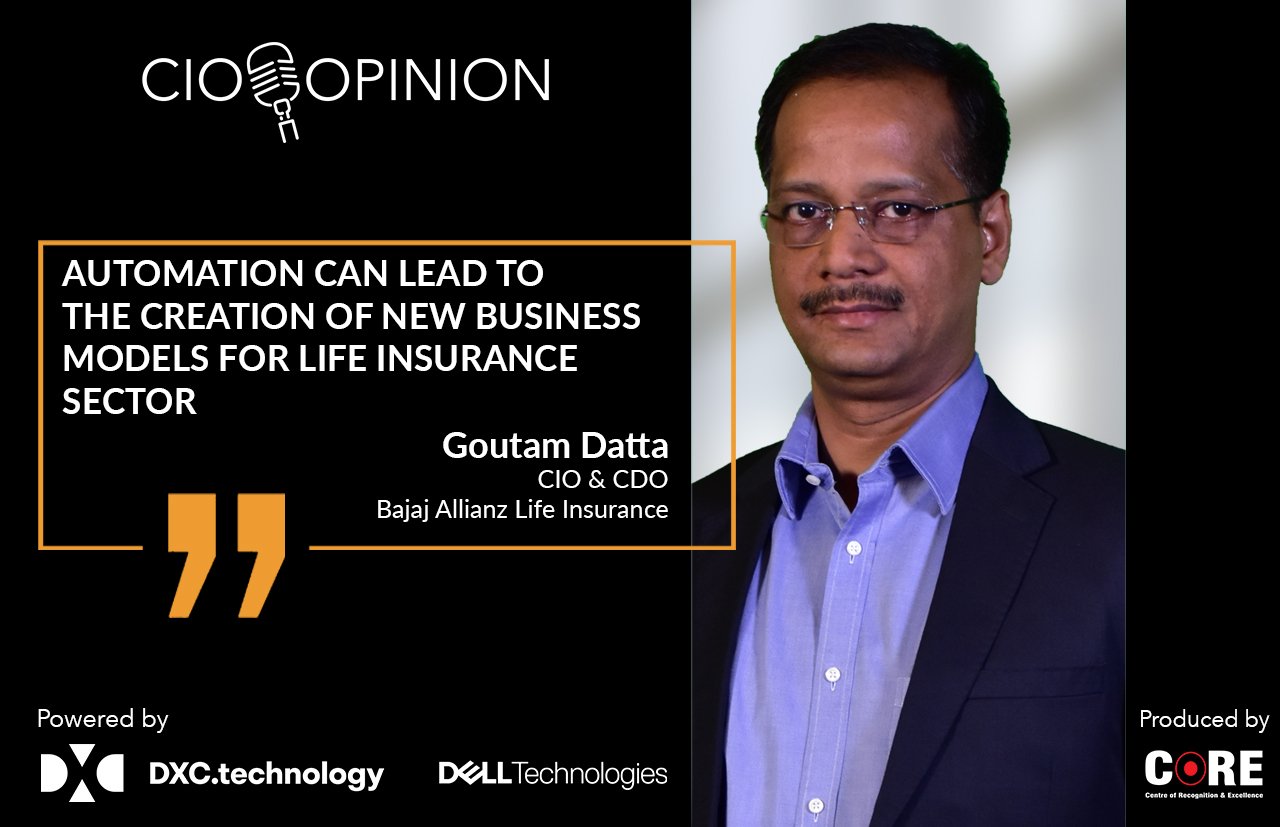Goutam Datta, CIO & CDO, Bajaj Allianz Life Insurance underscores the relevance of automation in recasting the business model of insurance companies
Life Insurance is a push product. In a push-scenario business, the dynamics change greatly. We have to constantly think of new ways of trying to make our products and services relevant to the changing needs and Life Goals of customers. One way of achieving this is to make our products more personalized as per the specific goals of different customer segments so that it adds value to customers by helping them achieve their pre-defined Life Goals.
The other dynamics include enabling partner, business, and product-level integration. This opens up new opportunities for insurers in terms of new business models.
In today’s digital era, new business models require a high degree of automation in business processes and workflows for smoother operations. Automation plays a big role in the way these dynamics are integrated to provide the right product to the right customer through the right channel.
There are some key business outcomes that automation can further enhance in the insurance sector. It can help insurers manage scale, control manual errors, gain speed and agility and improve time to market.
One of the key aspects of automation is Robotic Process Automation (RPA). RPA can help insurers automate repetitive and routine tasks that require manual effort, in addition to automating the entire business processes and workflows. Intelligent automation systems can also analyze large data sets thereby helping insurers understand customers’ behavior better, and then offer need-based insurance products and services to help customers achieve their Life Goals. Further, insurers can leverage automation for data-intensive tasks like claim processing and underwriting. Automated decision making in these areas can help achieve straight-through processing of 99% for underwriting and claims processing.
RPA tools can tackle end-to-end KYC processes at branches, ranging from accepting processing and fulfilling the request on KYC documents. It can also empower customers to complete their KYC through a self-service model. For instance, our customers can use self-servicing digital applications like our Life-Assist Customer Portal and mobile app, to complete their e-KYC.
AI-driven automation can help create new offerings and bring them to the market faster. It can also improve customer service through AI-driven chatbots. AI-driven intelligent automation can result in faster actions and decisions. It can lead to better outcomes for portfolio optimization, cross-selling, and upselling. It can result in product and service innovation by adding timely, in-demand new features to existing products and creating entirely new product propositions.
Automation also boosts security by playing a proactive role in fraud detection. It helps in protecting customer data more effectively, as it can prevent data leakage that may happen due to manual data handling.
In insurance scenarios, AI & ML can be used to answer the queries of potential customers in real-time and to boost sales conversion rates. Intelligent automation can help insurers pursue leads and that may result in a conversion. It can go through data points and provide propensity of conversion based on score. Based on the results, insurers can execute the campaign.
Many insurance players have started focusing on intelligent automation across several business processes. They have a definitive roadmap for its adoption Some of them have a long-range plan for AI-assisted automation and intend to build digital projects on this foundation.
The technology providers delivering automation solutions to the insurance vertical should develop a robust understanding of the vertical. When dealing with specific enterprises the need to have a clear understanding of their business objectives drives the adoption of automation.
To know more.


